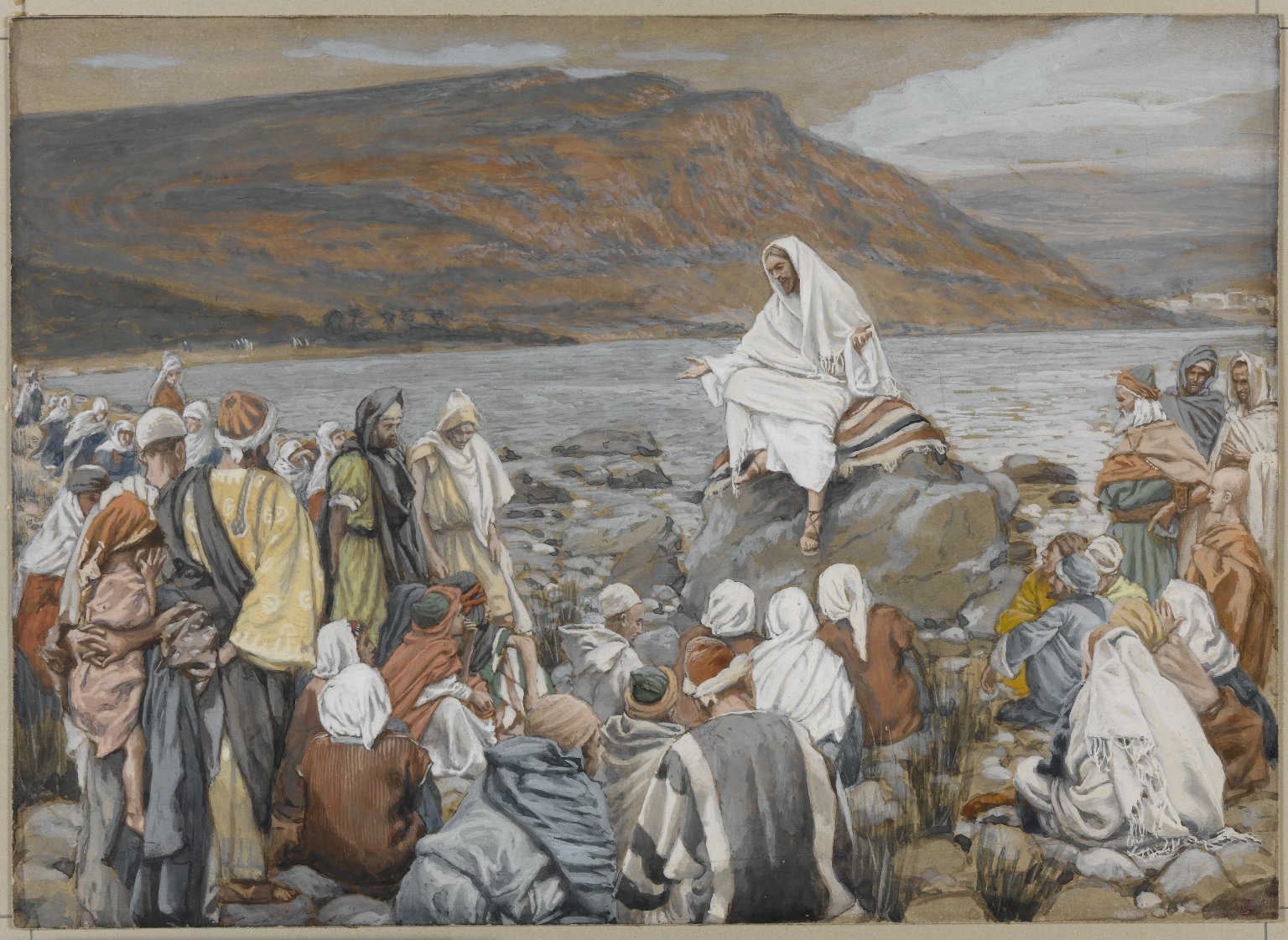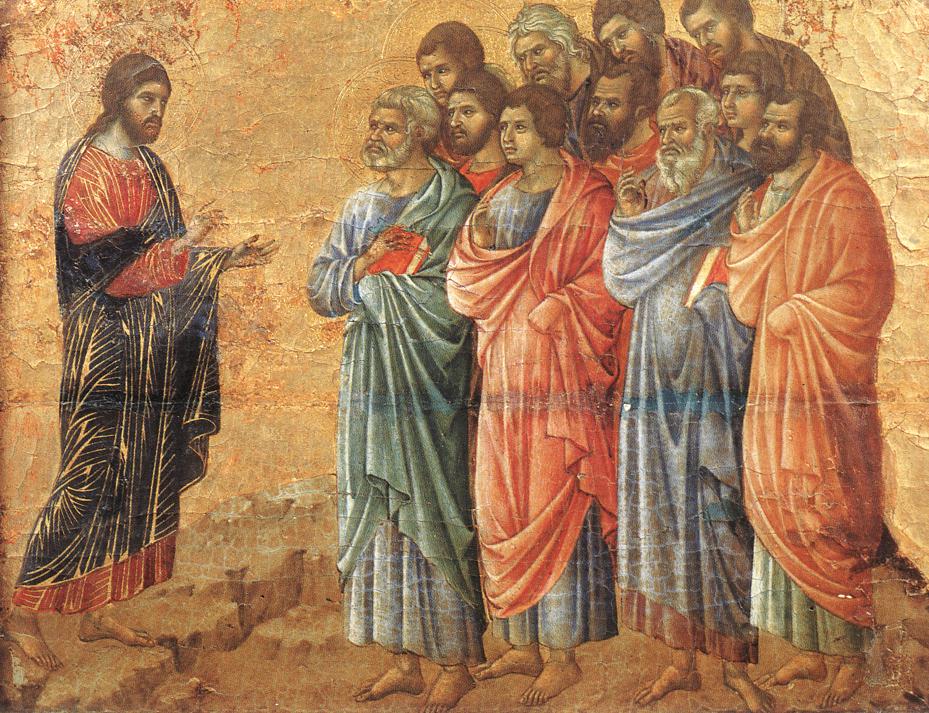Seventh Sunday after Epiphany
Measuring Up Your Enemies by Love
Luke 6:27-38
Seventh Sunday after Epiphany
Analysis by Mark A. Marius
[Jesus said:] 27“But I say to you that listen, Love your enemies, do good to those who hate you, 28bless those who curse you, pray for those who abuse you. 29If anyone strikes you on the cheek, offer the other also; and from anyone who takes away your coat do not withhold even your shirt. 30Give to everyone who begs from you; and if anyone takes away your goods, do not ask for them again. 31Do to others as you would have them do to you.
32“If you love those who love you, what credit is that to you? For even sinners love those who love them. 33If you do good to those who do good to you, what credit is that to you? For even sinners do the same. 34If you lend to those from whom you hope to receive, what credit is that to you? Even sinners lend to sinners, to receive as much again. 35But love your enemies, do good, and lend, expecting nothing in return. Your reward will be great, and you will be children of the Most High; for he is kind to the ungrateful and the wicked. 36Be merciful, just as your Father is merciful.
37“Do not judge, and you will not be judged; do not condemn, and you will not be condemned. Forgive, and you will be forgiven; 38give, and it will be given to you. A good measure, pressed down, shaken together, running over, will be put into your lap; for the measure you give will be the measure you get back.”
Author’s Note: Season after the Epiphany Connection: To love your enemies requires some di-vine work. In our humanity we are bound by the law that requires us to defeat our enemies lest we ourselves become defeated. Jesus will change this through his death and resurrection. This instruction Jesus gives proves prophetic and is manifested in his passion, crucifixion and resurrection.
In his passion Jesus experienced all that he describes in this passage from Luke and trusted divine love in the process. He was hated, cursed, abused, struck, stripped of his clothing. … But God measured his actions as worthy of a new life that is capable of restoring (transforming) our relationship with God.
DIAGNOSIS: Who Is My Enemy?
Step 1: Initial Diagnosis (External Problem): Others Who Oppose Me
In the verses before these we hear Jesus describe God’s love (blessing) for us in the most undesirable conditions. And now he puts the act of loving back on us. We are instructed to love in situations we would rather not. We are called to love our enemies and do good to those who hate us despite being cursed, abused, physically harmed, and stolen from. Through all that? Impossible. Our lives can’t risk it nor afford it.
Step 2: Advanced Diagnosis (Internal Problem): I’m My Own Worst Enemy
Do we even have mercy to give? That is a tall order. We live in a world that expects reciprocity. We can give as long as we receive something in return. We all would love to profit but at the bare minimum we need to balance our bottom line. Can we trust blessings Luke just dished out? Our fear of losing out squelches our fleeting faith.
Step 3: Final Diagnosis (Eternal Problem): I Have Made God My Enemy
Our instinct is to fight rather than to forgive. In the earthly economy we are a part of, we are limited to what each of us can give, and we fear that if we give too much, we will sacrifice our perceived freedom. Unfortunately, holding onto to what we have gained does not free us to receive what God is giving: mercy, grace, forgiveness. Therefore, we don’t get what we need but rather what we deserve. So, forsaking God’s commands to love our enemies, we make God enemy number one. Consequently, we get what we deserve: death for our sins. Human enterprise demands it of us.
PROGNOSIS: Who Can I Love?
Step 4: Initial Prognosis (Eternal Solution): Jesus Loves Us to Life
What was once impossible, is now possible because, by God, Jesus did it: Jesus loved, gave, and forgave all who turned on him and chose to count him as an enemy—me and you included. In his passion Jesus experienced all that he describes in this passage from Luke and trusted divine love in the process. He was hated, cursed, abused, struck, stripped of his clothing. He loved, forgave, gave his life and asked for nothing in return. And how did that turn out for him? Not well by human standards. But God measured his actions as worthy of a new life that is capable of restoring (transforming) our relationship with God.
Step 5: Advanced Prognosis (Internal Solution): I Am Loved
When we trust God’s economy of love, we let go of the fear of losing and are filled with the faith of contentment. God’s mercy comes to us as grace poured out in the sacraments. Such love alone has the power to transform us from enemies into lovers. As freely as Christ’s love flows is as free as we are to give it.
Step 6: Final Prognosis (External Solution): Love for Brothers and Sisters
We are transformed to no longer see adversaries as enemies but disconnected brother and sisters, siblings in Christ we are inclined to love. No, it’s not always pretty, but forgiveness allows us to strengthen our relationships and remain connected. Instead of competing to get our fair share we give to complete God’s loving work in all of us. Hostility is replaced with hospitality. Christ’s love in our hearts is fierce and willing to fight. But we no longer fight with our siblings but rather against injustices, systems and policies which don’t reflect God’s mercy and love.
